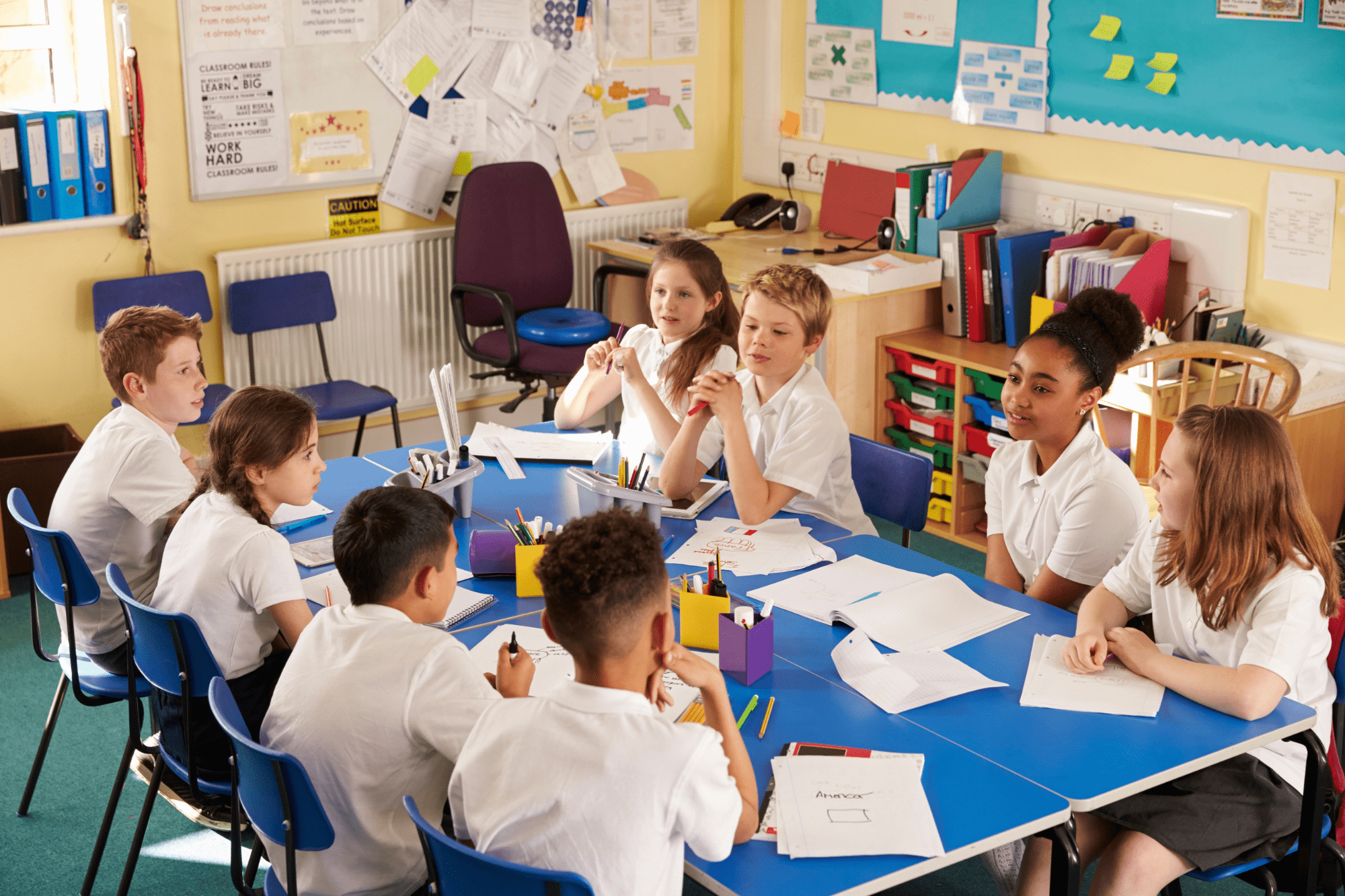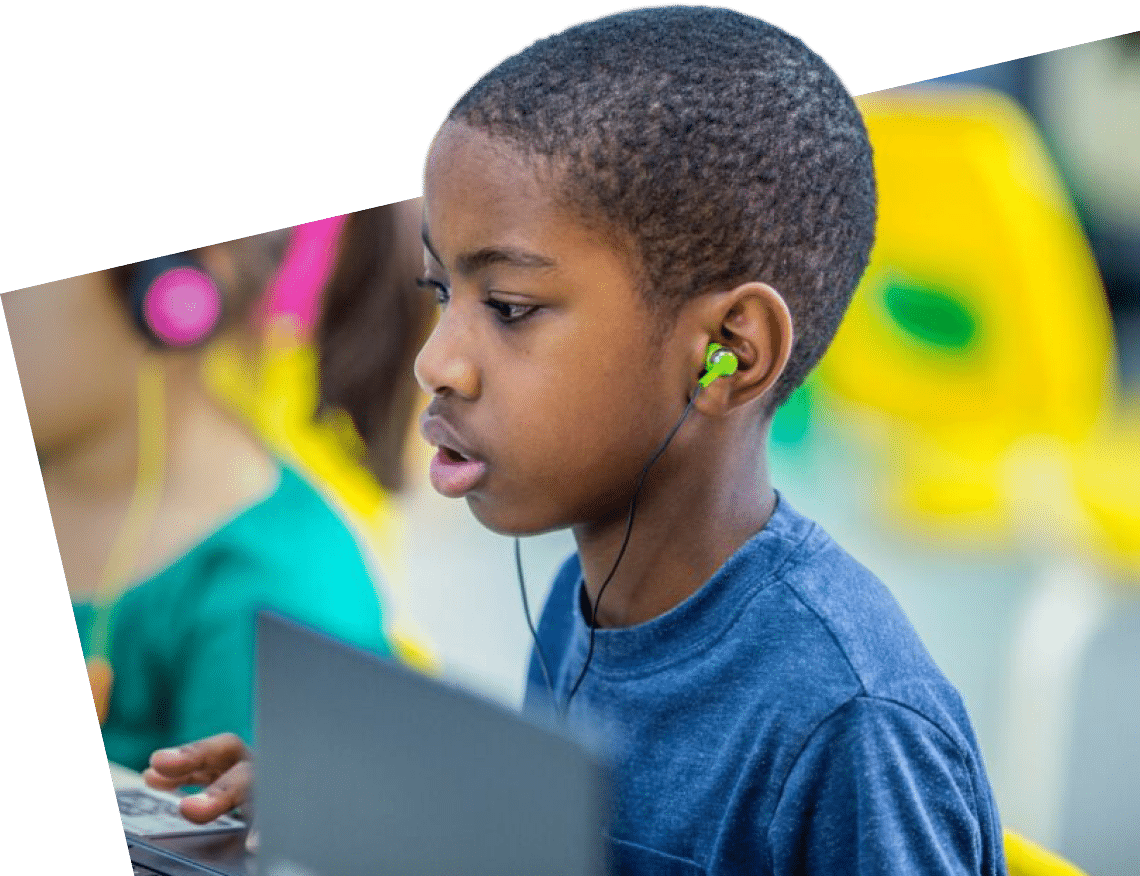14 May 2025
A Sense of Community: Supporting mental health in a digital world

Written by Natalie Hollins,
Parent Support Associate
As part of Mental Health Awareness Week, we’re reflecting on one of the most powerful tools for keeping children safe – community.
In education, community isn’t just a buzzword. It’s the glue that helps children feel seen, supported, and secure, both in the classroom and beyond. For parents and carers, helping a child feel part of something bigger than themselves can be one of the most meaningful ways to support their emotional wellbeing and development.
This year’s theme highlights how community and connection can positively impact mental health. We know that loneliness and isolation are major risk factors for poor mental health, particularly in children and teenagers. Feeling part of a supportive community – whether in school, online, or at home, helps build confidence, reduce anxiety, and promote emotional resilience.
At Tute, we believe that every child deserves to feel they belong – no matter how or where they learn.

What does ‘Community’ mean in education?
In a traditional school setting, community often means classmates, lunch queues, assemblies, after-school clubs, these are shared spaces where relationships and confidence grow. But what happens when a child learns differently?
For children learning online, the sense of community can feel more distant. And that’s something we acknowledge and actively try to improve.
Our students have told us:
“Not being able to see everyone else. I know it’s for safety reasons but building friendships over learning and not being able to see them is a negative.”
“Not being in a real school, I feel like an outcast from society.” These reflections matter. They remind us that learning online, while safe and flexible, can sometimes feel isolating, especially for young people still forming their sense of identity and connection.

How Tute champions community
At Tute, we are committed to building a sense of belonging into everything we do:
- Interactive live lessons where students can connect with teachers and peers through moderated chat.
- Familiar routines with consistent teachers and timetables that help students feel recognised and supported.
- Small group settings that allow every student to have a voice and be acknowledged.
- A focus on emotional wellbeing, listening to our students and creating lessons that are warm, respectful, and inclusive.
While we do limit peer-to-peer interaction for safeguarding reasons, we continue to explore new ways to build social presence and community, without compromising privacy or safety. When students feel part of something, they’re more likely to thrive academically, emotionally, and socially.
How parents and carers can help build community
Community doesn’t only exist inside a classroom; real or virtual. As a parent or carer, you play a vital role in helping your child build their wider circle.
Here are a few ways to nurture community and support mental health:
- Encourage extra-curricular activities: Sports teams, forest schools, youth theatre, or creative clubs offer valuable chances for face-to-face connection.
- Get involved in local groups: Guides, Scouts, or DofE schemes are not just hobbies – they’re gateways to shared experiences and friendships.
- Join homeschooling or SEND networks: Facebook groups, local meetups, and co-learning hubs can help families find their tribe.
- Create family rituals: Whether it’s Friday pizza night or a Sunday walk, routines at home foster a sense of belonging too.
These kinds of connections, big and small – play a vital role in boosting emotional wellbeing and preventing loneliness. These aren’t just “extras” – they’re essential. They help children build confidence, resilience, and the social skills they’ll carry for life.

A community effort
Looking after children’s mental health isn’t just about providing services – it’s about making sure they feel seen, heard, and part of something. Undoubtably, this happens best in a community.
At Tute, we’re proud to be a part of your child’s educational journey. And even prouder to walk it alongside you. Whether it’s through a supportive online classroom, a consistent teacher, or a friendly chat in a lesson, we believe connection makes all the difference.
Together – parents, carers, educators, and support networks – we are the community.
This Mental Health Awareness Week let’s remember strong communities build strong minds, and every one of us plays a part.
